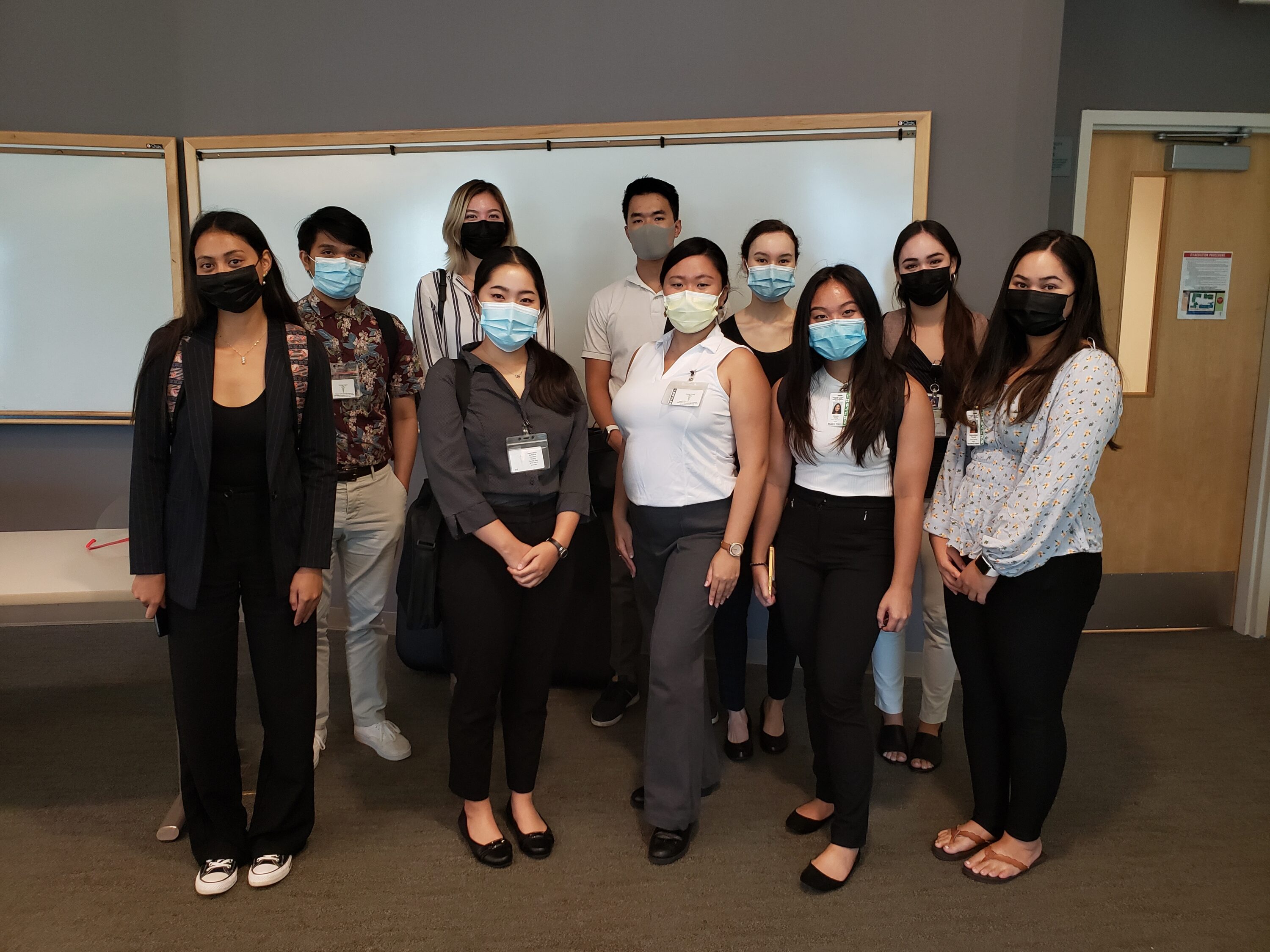Summer Research Internship Program
The Department of Native Hawaiian Health’s Summer Research Internship (SRI) Program provides a limited number of college and university students the opportunity to participate in a clinical, community‐based, or translational research study, and a health research curriculum organized by the Research Division of the Department of Native Hawaiian Health.
PROGRAM DESCRIPTION
The Department of Native Hawaiian Health’s Summer Research Internship (SRI) Program is a 10-week program that provides diverse undergraduate students the opportunity to learn and apply research skills from a health disparities framework. Interns conduct a clinical, community-based, or translational research study while being mentored by an expert researcher. Research projects typically focus on a health condition that disproportionately impacts Native Hawaiians and/or Pacific Islanders. Interns also participate in weekly research lectures, professional development seminars, informal talks, physician shadowing, and cultural activities that enhance their understanding of how culture impacts health and well-being. Interns complete a written project report describing their work, and present their findings at a scientific presentation held during the last week of the program.
PURPOSE
The program is designed to expose diverse students to clinical, community-based, or translational research in health-disparities in order to:
- Improve research and professional skills
- Reinforce the interns’ desire to include research in their professional careers
- Increase knowledge of health-disparities research and interns’ desire to include it in their professional careers
- Increase diversity in the future research workforce
Each student is matched with a research mentor, who helps the intern develop a clinical, community-based, or translational research project. Every effort will be made to consider the student’s interests and qualifications when mentors are assigned. While the intern has the ability to choose a project of interest to them, it must be done within the scope of the mentor’s available data (either from the mentor’s research project or a public dataset).
The intern is responsible for coordinating and carrying out all tasks necessary to accomplish project objectives, under the direction of their mentor and SRI program staff. The specific duties to accomplish each project vary; however, a typical research project has the following tasks, some or all of which may be done by the intern:
- Conduct a literature review and summarize the findings.
- Formulate a research question and design a study to address this question.
- Collect, enter, and validate study data.
- Analyze data (with assistance), applying appropriate statistical tests and interpreting the results.
- Prepare a final report including the documentation of study methods, analysis of findings, and impact on future research.
- Present research project and results to an audience of health care professionals and non-professionals, using appropriate audio-visual aids.
While not required, interns are encouraged to submit their final paper for publication.
CURRICULUM
Students are required to attend a rigorous research curriculum, which includes weekly formal research lectures, informal talks, professional development seminars, medical education experiences, cultural activities, and tours of various research and medical facilities. Interns must commit to being present for a 40-hour workweek Monday to Friday 8 am to 5 pm, thus summer coursework, employment, or other activities that interfere with this schedule are not allowed. See Frequently Asked Questions for more information on curriculum topics.
An optional overnight cultural activity is typically offered, which may vary year to year. This overnight cultural activity helps interns to grasp the importance of considering culture in health and health research, while providing an opportunity to strengthen social support. Past interns have reported that the relationships formed during SRI have helped them to successfully navigate through their academic and professional careers.
COMPENSATION
Interns are awarded a modest $2,000 stipend for the summer. Interns are not provided food, housing, or per diem funding. Though not guaranteed, interns may have the opportunity to apply for additional funding to complete their projects, publish their paper, and/or to travel to a conference to present their findings.
PROGRAM DATES
June 6 to August 12, 2022
APPLICATION
The application for the SRI program can be accessed by clicking on the link below.
Applications are due: Monday, February 28, 2022; 5:00 p.m. HST.
NOT ACCEPTING APPLICATIONS AT THIS TIME
SELECTION
Interns are competitively selected and must be US Citizens and either current Hawai‘i residents or nonresidents with already-secured housing placement for the duration of the SRI program. Preference is given to applicants with good academic record, a commitment to learn more about clinical, community-based or translational research in health disparities, an interest in a career in the health sciences (medicine, psychology, public health, etc.), an interest in health-disparities research, and/or who come from diverse backgrounds (see Diverse Backgrounds section below for additional clarification). Prior research experience strengthens an application but is not required. All applicants should be mature, hard working, motivated, and aware that research often takes many hours of tedious work to produce results.
DIVERSE BACKGROUNDS
A. Individuals from racial and ethnic backgrounds that have been shown by the National Science Foundation to be under-represented in health sciences. This includes Blacks or African Americans, Hispanics or Latinos, American Indians or Alaska Natives, and Native Hawaiians and other Pacific Islanders.
B. Individuals with disabilities as defined by the Americans with Disabilities Act of 1990.
C. Individuals from financially and/or educationally disadvantaged backgrounds, defined as
a. Individuals whose families are at or below annual low-income thresholds set by the U.S. Bureau of the Census.
b. Individuals who come from an educational environment that has inhibited the individual from obtaining the required knowledge and skills to develop and participate in a research career.
c. Individuals who are the first generation in their family to attend a 4-year college or university.
NOTICE OF SELECTION
Applicants will begin being notified via email in mid-March and will continue until all available spots are full.
FREQUENTLY ASKED QUESTIONS
Click HERE to view our responses to Frequently Asked Questions.
Contact Information:
Email: dnhhsri@hawaii.edu





